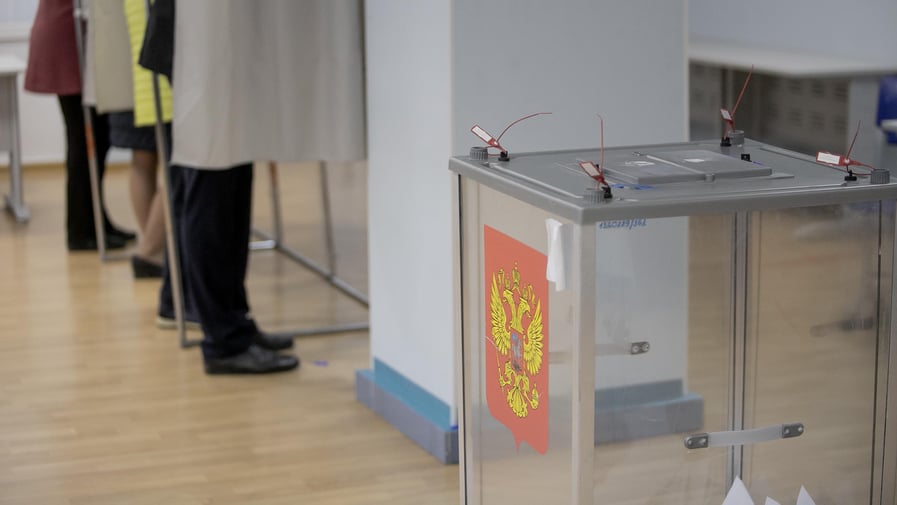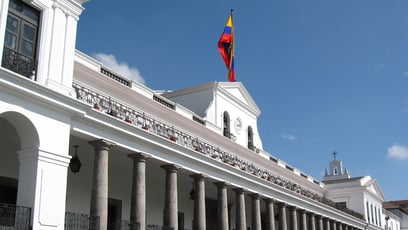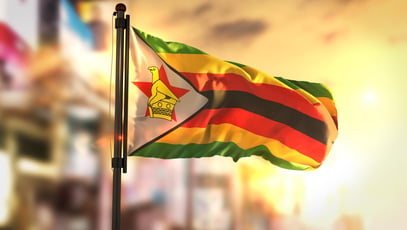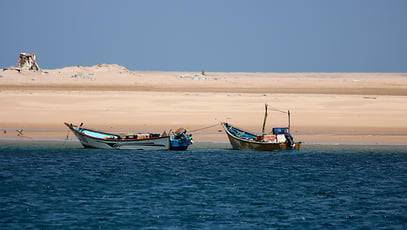Between 15-17 March, Russia will hold a presidential election. The result is not in doubt, and the election will simply serve as a coronation to confirm President Vladimir Putin’s stay in office until at least 2030. But that does not mean the election is insignificant.
If Russia ever was a democracy following the collapse of the Soviet Union, since Vladimir Putin first stepped into the top job in the country in 2000, a steady erosion of civil liberties and a hollowing out of democratic institutions has ensured that presidential elections have become little more than a carefully orchestrated spectacle. Still, the upcoming election serves a clear purpose in buttressing Putin’s regime and lays the foundation for further repressive steps with both national and international ramifications.
Elections for days
Aside from Putin, three other candidates will be on the ballot, all hand-picked by the Kremlin to present a façade of choice: Nikolai Kharitonov of the Communist Party, Leonid Slutsky of the nationalist Liberal Democratic Party, and Vladislav Davankov of the New People Party. All three are broadly supportive of government policies, and none have outright criticised Putin. Ultimately, Putin is still likely to win around 80 percent of votes and secure the presidency in the first round.
The election will be held over three days, though there is no credible, practical reason for doing so. The multi-day election was introduced in Russia during the Covid-19 pandemic to limit crowds, but this will be the first instance of its use for a presidential election. Critics have argued that the three-day period simply creates greater opportunities for vote tampering, with ballot boxes stored out of sight at night. The longer period may also serve to boost turnout figures, which the Kremlin can use to make the case for a strong mandate for another Putin term.
A withering opposition
The death of Aleksei Navalny while in detention on 16 February was a stark reminder that Putin is not without his opponents. But the space for the opposition to operate has continuously narrowed under Putin’s reign, and further measures to limit individual liberty are likely to follow the election. Already in the run-up to the election, the Kremlin is working to ensure that democratic choice is severely curtailed at the polling booths and the Central Election Commission (CEC) has blocked genuine opposition candidates from being included on the ballot. In December, the CEC barred Yekaterina Duntsova, a former television host and vocal opponent of the Ukraine war, from running, citing irregularities in her submitted paperwork. And, after gathering around 200,000 signatures of endorsement – twice the required number to be included on the ballot – opposition politician Boris Nadezhdin’s attempts to register was similarly disallowed in January, presumably out of fear that his running might have pointed to the true degree of dissatisfaction with Putin’s policies.
Nadezhdin has not (yet) faced any direct consequences for his attempted campaign, while police briefly detained Duntsova in January, ostensibly to carry out a routine blood test for narcotics. But as Yevgeny Prigozhin’s death in a plane crash in August 2023 demonstrated – two months after Prigozhin’s private military company Wagner had staged an attempted coup – the current regime has taken a patient and sometimes delayed approach to clamping down on or eliminating threats, both real and perceived. Emboldened by a favourable election result, Putin is likely to oversee further measures to contain opponents and naysayers, particularly through systematic arrests and convictions.
Beyond the borders
Putin’s renewed term in office will bear most significance domestically, but at the same time ensures the continuation of Russia’s foreign policy objectives, with the most direct implications for Ukraine and European security. Following a partial mobilisation in the autumn of 2022, Russia has not sought to bring further manpower to the Ukrainian front except on a volunteer basis. Russia’s large population and the lucrative contracts it has issued to volunteers – predominantly from impoverished regions of the country including Tuva, Buryatia, and Chechnya – has meant that this still translates into significant troop replenishments. However, with relatively slow progress in Ukraine, Russia may seek to not only replace battle-weary troops on the front lines, but to significantly bolster overall numbers to create momentum for a more decisive breakthrough. A newly elected and emboldened Putin may well use his renewed mandate to enact the inevitably unpopular decision to order another partial mobilisation.
Greatly increased spending on the war has, crucially, not had as detrimental impacts on the economy as might be expected. So far, the Russian economy has defied expectations, outperforming predictions of an imminent economic collapse following the slew of sanctions imposed on the country since February 2022. Putin can claim success in managing this resilience, even if it comes with significant long-term costs. This has been a crucial factor in maintaining genuine popular support. As a result, while the Russian army has suffered significant losses in Ukraine, various frontline European states are fearful that the longer Putin stays in power, particularly if Russia can grind out even a partial win in the war, the more likely it becomes that Russia will seek to test NATO’s commitment to Article 5. In cementing his position at the top of the Russian hierarchy, Putin is concurrently seeking to entrench his role in Russian history as the revitalising force behind Russia’s rise to pre-eminence in the global order.
There is nothing to play for in the Russian presidential election, but there is a lot riding on it.




